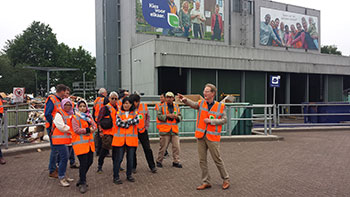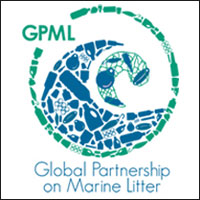Collaboration
Thriving Societies, Healthy Waters
Within the framework of the project 'Thriving Societies, Healthy Waters. An interdisciplinary approach to achieve water-driven socio-ecological resilience in Indonesia' the Faculty of Science organized two workshops together with the Department of Anthropology and Development Studies - Institute for Science in Society (ISIS) - Radboud University Nijmegen-, Institut Teknologi Bandung (ITB), The Soegijapranata Catholic University, the Gadjah Mada University (UGM) and DELTARES.
The workshops focussed on a number of selected so-called wicked (difficult to address and solve) socio-ecological issues; the often unintended and unanticipated causes and consequences of the introduction, use and disposal of plastic waste (including micro-plastics) and antibiotics.
The aim of this project is to strengthen - through close cooperation with societal stakeholders - the capabilities of science and society to address one of the most persistent socio-ecological challenges in Indonesia, i.e. to avoid water pollution, to guarantee everyone access to clean drinking water, and to avert the emergence and spread of water related diseases.

Visit with Dutch-Indonesian research team to waste recylcing company Circulus-Berkel B.V in may 2018.

Partners and projects
Plastic waste in the aquatic environment can vary greatly in size, i.e. from the nanometre to the meter scale. The larger macro plastics are mainly associated with visual pollution and forms of physical stress (e.g. entanglement and blocking of inlets), whereas the smaller micro plastics are mainly associated with food chain accumulation and toxic effects. Macro plastics typically originate from dumping, littering and wind dispersal, whereas micro plastics typically originate from the degradation of macro plastics and specific applications, e.g. micro beads in medicines and personal care products.
The need to address plastic pollution in aquatic environments has been recognized worldwide, e.g. in the United Nations Environment Programme (UNEP) Honolulu Strategy. The Department of Science cooperates with several organizations. Research topics focus on micro- and macroplastics pollution in rivers and seas and include detection methods, modelling, effects and preventive measures.
Global Partnership on Marine Litter
The Faculty Science of the Open University of The Netherlands is part of the Global Partnership on Marine Litter (GPML), a global community of stakeholders dedicated to reducing the sources and impacts of marine litter worldwide.

